Interview
Serge KOFFI, Africanews correspondent:
Welcome to this Africanews interview. We are here in Kinshasa in the Democratic Republic of Congo with Prime Minister Jean Michel Sama Lukonde.
Good morning Mr Prime minister, and thank you for receiving us here at the primacy.
SAMA LUKONDE: Hello Serge, you are indeed most welcome.
**_Serge KOFFI: You have been in this building as Prime Minister for 5 months. _**We are going to discuss with you the security, economic and political situation in your country.
When you arrived, you outlined a plan to make the DRC united and prosperous. 5 months later, how far have you gone?
SAMA LUKONDE: As soon as we arrived here at the Prime Minister's Office, we made it a priority to change the country's economic and political situation. We made it a priority to change course. We arrived in a context where all the lights were red and we found several backlogs.
We found a rather difficult economic situation and we decided to embark on a new direction by maximizing our revenues first. This required us to advocate good governance, the fight against corruption. And so finally this policy of the policeman, if I may describe it as that, has allowed us to have better results first of all in terms of our state revenues.
This allowed us to intervene in all the administrative sectors first of all to start with and to allow our action to be better or better felt. In addition, we have decided to ensure security and peace in the east of the country, particularly in the provinces of North Kivu and Ituri and we think that since April 26, we have made progress in this area and all the arrows or indicators are going up in the positive at the moment.
SERGE KOFFI: The economic crisis is also shaking the DRC. And this is one of the challenges you are facing. How do you intend to raise the country economically by 2023?
SAMA LUKONDE: We are coming to a period where covid-19 has already had its effects, it is global.
It has been around since 2020, starting in March. Since then we have experienced a real blow, even in relation to our GDP, which was around 4.6 billion. Now that has dropped to 1.7 for the whole of 2020 running into 2021. When we came into office, we decided first to maintain the macroeconomic framework but above all to diversify our economy because what we need to know is that what currently underpins the economy here in the Democratic Republic of Congo is the
of the Congo is the mining sector, and fortunately the prices of this sector have remained and they are still rising, especially for the products that we export, notably copper and cobalt, and this is what allows us to maintain a certain stability at the moment. But we want other productive sectors to emerge, especially in agriculture.
SAMA LUKONDE: "THE CENSUS WILL BE DONE"
SERGE KOFFI: In 2023, the next elections will hold in the DRC. Some voices are already worried because the process was supposed to begin with a general census, which has not been held yet. What is slowing down the census of the Congolese?
SAMA LUKONDE: First of all, we are talking about a structure that is supposed to organize these elections. It is the Independent National Electoral Commission, the CENI, and next to this structure, we have an organic framework.
We have laws that finally organize everything. The electoral law itself. And finally, we need means to organize these elections. Of course with a consolidations. For me, it is a question of sovereignty because the last elections we had them a little over 20 years ago. Today, in all responsibility, it would be logical for us to have this census from an administrative point of view. But since you mentioned them, and with the circumstances I mentioned, we wouldn't necessarily want to put the two issues together because the two issues are not the same.
We would not necessarily want to put the two issues together because the last two elections, don't forget that we did them without having had the census. So today, we have a lot of commissions working on this so that we can have a clear roadmap that will allow us to carry out this census in all objectivity. That will allow at the same time for us to have a credible electoral file with people who are concerned in the population.
Serge KOFFI: Let's talk about the security situation in the East. Your approach has been to establish a state of siege. What have been the results of this approach today?
SAMA LUKONDE: From the point of view of our government program, this is really the action we have been working on. That's what we did. The Head of State had initiated in October 2020 consultations with all layers of the federation. The request was to have a military administration to truly eradicate this cycle of violence that has lasted too long. It has been for more than 25 years. We are putting all our efforts into it.
And according to the results that we have today, there are several strongholds that were in the hands of negative forces that have been liberated. And the real effort that is being made now particularly in ITURI against the ADF (Allied Democratic Forces) is to really make sure that they are in their last ditch. And this also requires that we work with neighboring countries.
Serge KOFFI: Mr. Prime Minister, thank you for accepting this interview.
SAMA LUKONDE: Thank you. It was a pleasure speaking with you.




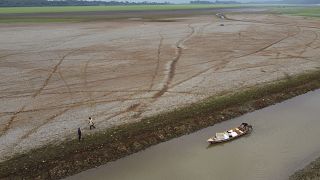
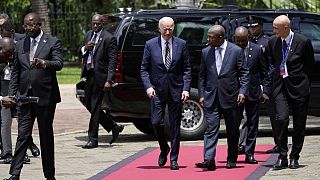
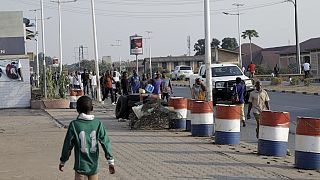
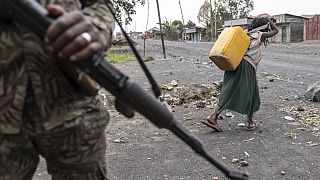
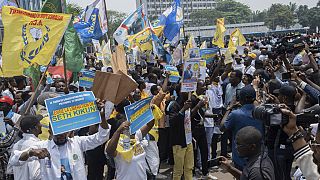
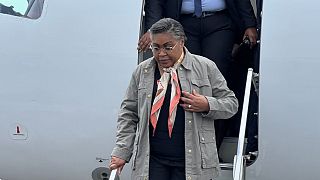
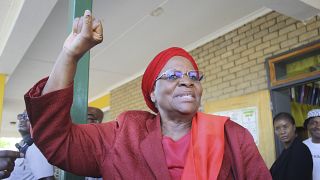
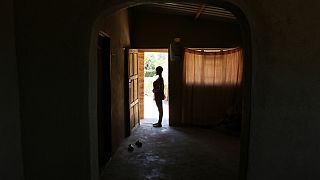
01:03
Mali’s junta appoints military general as new prime minister
01:28
Section of Malian military calls for the resignation of the PM
01:17
Newly appointed Haitian prime minister swears in cabinet of ministers
Go to video
Libyan protesters block oil valves demanding release of kidnapped General
Go to video
Moroccan journalist sentenced to 18 months after remarks about a politician
01:12
Haiti’s new interim prime minister Alix Didier Fils-Aimé takes office